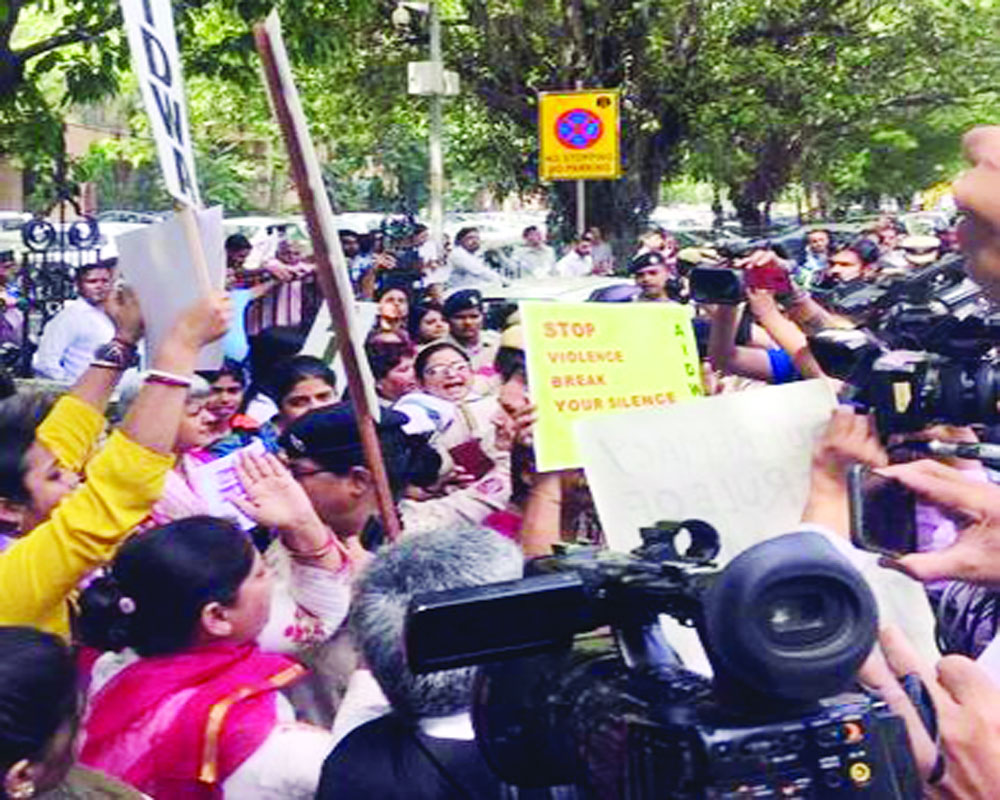By hurriedly clearing the CJI of sexual harassment charges, the SC probe panel raises more questions than answers
Why is it that the terse dismissal of sexual harassment charges against the Chief Justice of India (CJI) Ranjan Gogoi by an in-house panel hasn’t quite given us a sense of closure? Why is it making us all too uncomfortable? Wasn’t it led by extremely learned justices, two among them women, who were expected to be armed with the best legal knowledge and stand as protector of human rights? Or was it the case of institutional integrity having a far higher cost than the dignity of an individual, a woman in this case? She has a right to know as do we. Perhaps so many questions are the reason why women lawyers turned up outside the Supreme Court and shouted slogans of “supreme injustice.” This reinforces what we have been saying from the the beginning of this delicate case, that procedural propriety be adhered to even if the nature of the proceedings was “informal, in-house” and not liable to public consumption. This became even more imperative in a scenario as the accused, in this case the CJI, can only be impeached by Parliament and cannot be subjected to any prevalent legal mechanism. Which is why his image needed to come clean in absolute terms with full transparency than the hush-rush probe that has done more damage than repair. The opacity, the non-inclusion of neutral observers and the summary disposal have only lent credence to people’s worst doubts, that the judges of the Supreme Court are untouchable, answerable to no one and can interpret the law to rise above it themselves. Considering the extreme polarities — the CJI claiming that the charges were trumped up to force his hand on key verdicts and the woman claiming there were reprisals against her and her family for bringing the issue up in the first place — it was important for the probe panel to not appear one-sided. For at one end was the suggestion of a mischievous conspiracy against the highest court by using something as coarse as a honey trap. On the other was the accuser, standing up for the rights of all working women, who become soft targets of vilification campaigns and are always assumed to have motives. For the sake of both, the court needed to walk the thin red line without wavering a hair’s breadth. But the court-appointed panel swung appallingly to put it mildly. Not only did it appear to have pre-judged the case, it did not even go through the motions. Neither did it take umbrage at the CJI’s special hearing without the complainant, nor did it check the backstory of the judges on the panel till the complainant pointed out one of them was a friend of the CJI. He recused himself thereafter.
Considering the case was based on highly unequal circumstances — a junior employee versus the CJI — the investigation turned out to be more intimidating than trustworthy. All the complainant wanted was the presence of her lawyer or any support person for the sake of neutrality, an audio-video recording of the committee proceedings and a copy of her statements as recorded on two sessions for the sake of fair play and cross-questioning. By keeping an apolitical third party at the proceedings, the court could have prioritised fairplay and made the complainant feel secure enough and not walk away. The fact that the court disregarded public pressure to comply with democratic rules and principles and even ignored the counsel of senior judges Chandrachud and Nariman on the matter shows the impunity with which it pushed a closure rather than a satisfying resolution. The court’s claims that informal proceedings need not be made public run counter to the transparency and right to information it espouses in its other rulings. And here the public needs to know the details about the actions taken or not taken against a Constitutional authority. If indeed Gogoi is innocent or the woman guilty, wouldn’t it have been better to publicise the findings, both for himself, the institution that he represents and women’s rights? Wouldn’t it have been better to avoid a stigma and set a precedent for all time to come? A conspiracy of this scale against the judiciary, if it was indeed so, should have been exposed widely and made an example of. Clearly, after this shoddiness, the court and the CJI will forever be under doubt. As are the other judges against whom no sexual harassment charges were ever proven. As for the woman, the intimidating force of the country’s topmost institution is too big to wage a crusade on her own. The legal route is out. As for us, there’s always our conscience. And unending assumptions in the absence of waterproof evidence.


























